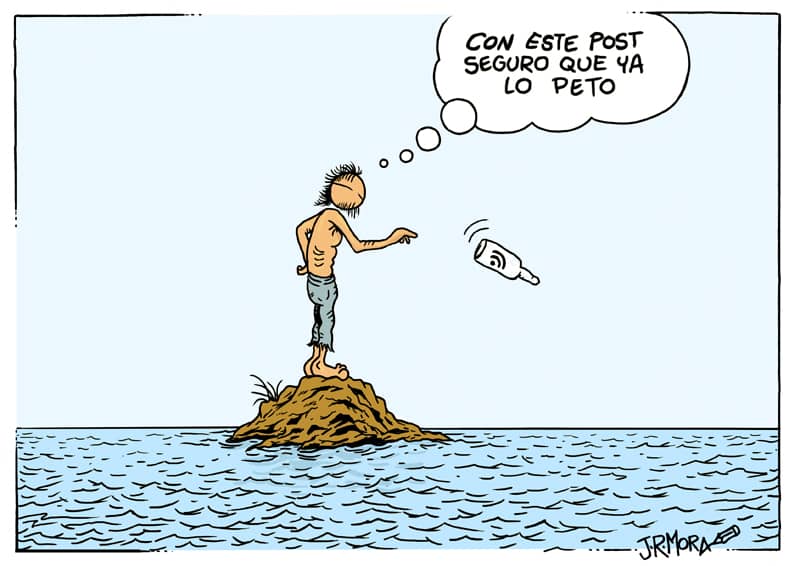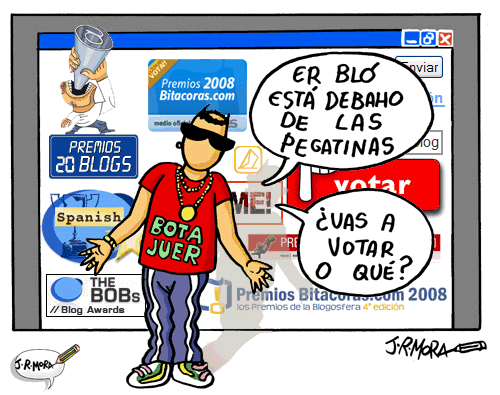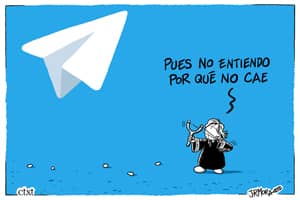
Traslation: "With this post I will surely succeed"
Yes. Blogs are dead
Every two or three months I go on a scavenger hunt to fix the broken links on the blog because after almost 20 years and 4883 published posts it is inevitable that dead links appear. Those corpses, besides giving a certain image of abandonment, are bad for the positioning thing.
To find them I do what everyone who uses WordPress usually does. I use a plugin like this as it's the easiest way to locate them and it also marks a copy of the missing page in the valuable Archive.org library. In 2018, thanks to Archive, some 9 million broken links were repaired on Wikipedia alone.
But I don't stop at just locating, removing or changing them in an automated way. I make a habit of visiting their latest copy in case they moved to another server or left a clue that they opened a new page to point the dead link to.
I think it's safe to say. Blogs are dead. At least as they were conceived at their birth. Every time I do a searchI keep finding more and more defunct blogs. This is not even anecdotal, but since blogs have been around for so long, I don't think there are many they are no longer fashionable has been around for a long time, I don't think there are many studies that reliably count the number of casualties either.

Translation:
If everyone who predicts the death of blogs...
We won't be able to kill them in the fucking life!
If the closure of Le Covtelera (2005-2014) claimed thousands of blogs, it is enough to look around Blogger (Blogspot) to find a gigantic online graveyard.
The funny thing about the song of the death of blogs is that it has been announced almost since the very day they were born, as a rather more than obvious omen. Although in 2008 they still had some fuse left.
They competed for the best blog in competitions such as the 20 Blogs of the newspaper 20 Minutos (of which I have many amusing memories of the votes), in the 20 Blogs of the newspaper 20 Minutos (of which I have many amusing memories tricks with the votes), in the Bitácoras contest with its EBE or in the international The BOBs organised by the Deustche Welle, the German public television. Those were already big words.

An animated relic
And so, while I'm changing links to defunct sites, I come back to the quintessential tune of 2008.
During that year the so-called "influencers", also known as "Blogstar" or "A-List" (because they were at the top of all the inbred blog lists) were writing about the impending great demise. On the other hand, it was almost logical, the internet was changing, as it always does, and blogs that talked about blogs were running out of things to talk about.
I also remember that blogs were being talked about in the media with great fanfare as the new format for success (again, I see analogies with today's networks). Every now and then a guy, usually a Yank, would appear posing with a million-dollar Adsense cheque he had earned from blogging. The reality was that 99.9% of bloggers were either eating the snot out of the ads or hopefully making enough to pay for hosting.
Translation:
"Monument to the sailor who clicked on an Advert"
As is still the case today, the trick was traffic and volume. The more blogs and the more pieces published, the more likely someone would click on an ad. Blog networks were born. In some of these networks, the blogs looked like blogs, but their style was no longer as blog-like as it was then understood to be.
Ad blockers were also beginning to appear, but there was still room to get something out of those banners with squeaky sound and epileptic movements and flashes.

The Test of Death was one of the banners that fucked the most eardrums with its lame audio.
The media had already embraced the blog format. Some to appear modern and others to accumulate traffic. In many cases the blogs were nothing more than the usual opinion column of their usual columnist. They stuck a template with a blog disguise on it and off they went.
El País inaugurated "The Community"It ended up closing down just six months later. It ended up closing just six months later with 7,000 blogs that disintegrated into what the rancorous still called cyberspace.
Another great recurring debate that reached heights of tiresome exhaustion around that time was the dichotomy of whether blogs were journalism or not. There was no shortage of journalists absurdly annoyed with those "amateurs" who wrote things on their own. There was an ongoing debate between the purists, some already in neo-luddite mode, and the users of the new formats. This would lead to another great discussion that ended up boring the flies, the citizen journalism.
Amidst all this posturing, the blogs that maintained the essence of a purely personal blog began to fall. Their writers abandoned them and/or let themselves be carried away by the new social networks, devoting their contents, now as pills or aphorisms, to that bottomless pit of permanent noise that was already Tuiter.
Gone were the flames between blogs that were no more than a soft version in text of the current irrelevant bickering between Youtubers that only interested their protagonists and a fairly small group of readers. Most of them were other bloggers on the hunt for backlinks.
These are just a few things I've remembered as a result of a brief bout of late-night nostalgia. It lasted just as long as it took me to fix the 597 new broken links that appeared during the last scan of the quarter.








